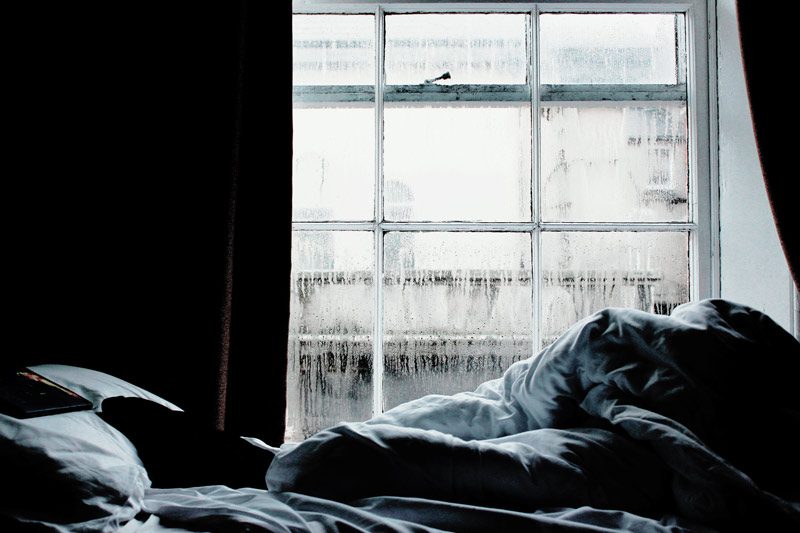Have you ever felt miserable because it seemed like winter would never end? Although it’s natural to get tired of the long, dark days, some people experience seasonal affective disorder or SAD. SAD, also referred to as seasonal depression, affects 10 million Americans each year, most of them women. If you experience depression at the same time every year, here are several tips for coping with seasonal affective disorder.
Make an Appointment with Your Doctor
Feeling depressed should always be taken seriously, so if it’s been weeks since you’ve felt like your usual self, make an appointment to see your physician. The doctor will probably start with a physical exam and run a complete blood count to see if you’re otherwise in good health. Only you know when you’re feeling depressed, and if it comes on every winter followed by a normal spring and summer, you might have seasonal depression. Treatment may include bright light therapy and an antidepressant.
Boost Your Vitamin D Levels
If you’re feeling down and depressed, you may want to check your vitamin D intake. Vitamin D is referred to as the “sunshine vitamin” because your body makes it when your skin is exposed to UVB rays of the sun. In the winter months, these rays can’t reach you as much, so you need to supplement them in another way. Try taking a vitamin D or calcifediol supplement and add vitamin D-rich foods such as eggs, mushrooms, and fatty fish to your diet.
Invest in Special Lighting
Another way to treat SAD is through light therapy, also called phototherapy. This treatment involves purchasing a special light-box with bright fluorescent bulbs. You don’t need to look at the bulbs. Just place them near you for the prescribed amount of time. Many people see a difference within a few days, using the light daily until spring arrives.
Another type of light that may help with seasonal depression is a sunrise alarm clock. These clocks gradually simulate the rising sun, slowly brightening your room in the morning, helping to regulate your circadian rhythm and leading to more regular sleep patterns.
Get Invigorated with Aromatherapy
Don’t discount the use of aromatherapy to make you feel like a new person. Aromatherapy has countless benefits, from treating sleep disorders to helping with depression. Essential oils, candles, diffusers, and potpourri stimulate the smell receptors inside your nose that send signals to your brain. This positively impacts your emotions by releasing serotonin. Aromas that may help with depression include lavender, neroli, and citrus scents.
Hit Up a Friend for Coffee
Although socializing isn’t a cure for seasonal depression, it may alleviate some symptoms. Isolation during the winter months isn’t healthy for anyone, and it can turn into a serious case of cabin fever. Instead of letting it drag you down, hit up a friend for coffee or a shopping trip to the mall. Getting out and catching up on gossip with a soothing beverage could be just what the doctor ordered. Even if it’s just for a couple of hours, a change of scenery will do you good.
Commit to Weekly Exercise
Exercise can feel like the most challenging thing in the world when all you want to do is pull the covers over your head. However, getting yourself moving is one of the best remedies for seasonal depression. If it isn’t possible to go outside because of foul weather, commit to exercising inside your home. There are countless videos online, from yoga to walking. After a few days, you’ll look forward to your routine and see your mood improve.
Final Thoughts
Everybody has down periods, but if it happens at the same time every year, it might be seasonal affective disorder. Increasing your vitamin D, using light therapy, and exercising will gradually make the dark clouds lift.
If you or someone you know experiences mental health issues, it is important to seek help from a qualified professional. Our Resource Specialist can help you find expert mental health resources to recover in your community. Contact us now for more information on this free service to our users.
About the Author: Carol Evenson is a loving mother of three, an aspiring writer, and a social activist. She enjoys educating and learning and loves sharing her knowledge with her family and friends.
The opinions and views expressed in any guest blog post do not necessarily reflect those of www.rtor.org or its sponsor, Laurel House, Inc. The author and www.rtor.org have no affiliations with any products or services mentioned in the article or linked to therein. Guest Authors may have affiliations to products mentioned or linked to in their author bios.
Recommended for You
- The Truth about Relapse in Addiction Recovery - April 14, 2025
- The Power of Peer Support in Mental Health Recovery - April 10, 2025
- Artificial Intelligence in Anxiety Management: How AI Helps Users Cope with Anxiety Symptoms - April 3, 2025






I really enjoyed this article. It’s a very digestible read and easy to pass along to friends or family that you think might benefit. I especially liked the tips to combat SAD and how I could implement them in my life.